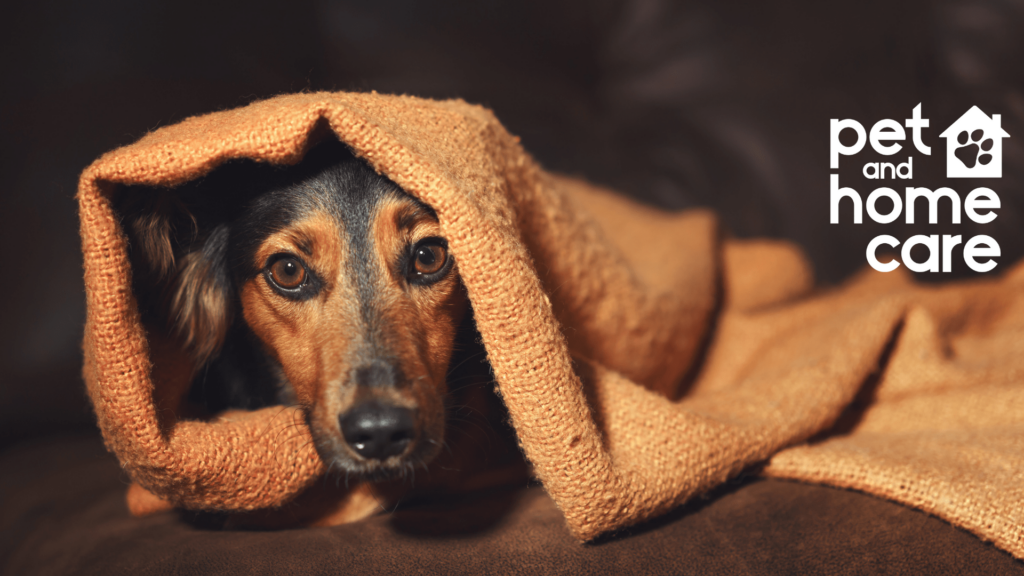Returning to work soon? Many pets, especially those adopted during the pandemic, aren’t used to being left home alone. Pets can experience separation anxiety when their owners leave for periods of time. Dogs and cats can also feel anxious going to the vet or to other unfamiliar places. While it’s normal for pets to feel anxious, prolonged bouts of anxiety can potentially lead to the development of an anxiety disorder and other behavioral problems. Here are our best tips to understand and ease your pet’s anxiety.
Types of Anxiety
Separation anxiety causes distress in pets when their owner leaves the house. According to the American Kennel Club, separation anxiety is experienced by around 14% of dogs. This number may increase as pet owners start to spend more time outside the home and away from their pups. Fear-related anxiety can be caused by a variety of things such as being in an unfamiliar place (i.e. the vet/groomer/in the car), loud noises, or other animals.
Symptoms of anxiety
Separation anxiety can manifest in a variety of unhealthy behaviors such as excessive barking, drooling, digging, pacing, destroying things around the house, and defecating or urinating inside the home. Fear-related anxiety can lead to other nervous behaviors and even aggression towards people and animals. Dealing with this anxiety is essential for the safety of your pet and others.
Routine
Pets are calmed by having a regular routine. Routines allow your pet to relax because they don’t have to worry about what will happen next. Exercise and socialization are a great part of any routine. If you aren’t able to walk your dog every day, hire a dog walker or treat your dog to regular dog daycare. Making this a part of your dog’s daily regimen is a great way to reduce anxiety and promote healthy behaviors. See the difference in your pet by booking pet care with us!
Treatment
Talk to your veterinarian to make sure no underlying health conditions could be causing their behavior. Veterinarians can also help to identify your pet’s type of anxiety. Many pet owners try to desensitize their pet to the source of the anxiety in small doses. Rewarding good behavior can go a long way in changing your pet’s mindset. Try enlisting the help of a professional dog trainer to help you choose the right approach.
Treating Anxiety with Hemp Oil
Hemp oil is a natural medication that is becoming increasingly popular amongst pet owners for its many health benefits. Derived from the stalks, leaves, and flowers of the hemp plant, hemp oil can remarkably improve chronic pain, anxiety, and other ailments in pets. Hemp oil can be an effective treatment for pets with both fear-related and separation anxiety due to its calming and relaxing effect. Supplementing with hemp oil during stressful times can make things go much more smoothly for both you and your pet. Although there are many prescription drugs that can ease anxiety in pets, traditional pharmaceuticals often have harmful side effects and can cause damage to the kidneys and liver. One of the greatest benefits of hemp oil is its potential to minimize or eliminate the need for pharmaceutical drugs. Studies have found that it even works best when used daily.
How to Choose A Hemp Oil Brand
When deciding which brand to buy from, always make sure the hemp oil is free of pesticides and made in the USA or locally in your home state. Hemp oil should always be THC-free and organic, so as to remain untainted by pesticides or heavy metals. Make sure you buy hemp oil (made from the leaves, stems, and flowers) rather than hemp seed oil. Hemp seed oil does not have the pain and anxiety-relieving benefits of hemp oil. Stay tuned for our big announcement related to hemp oil!

